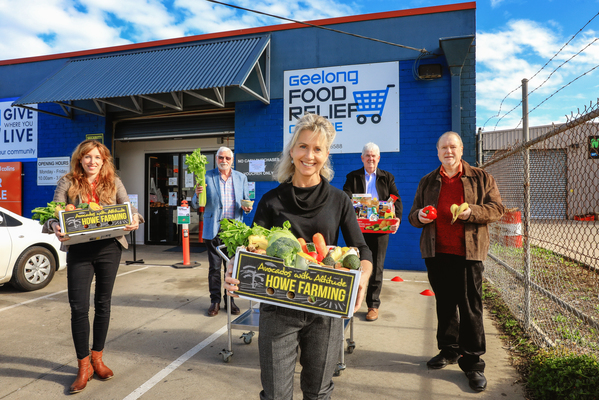
A “landmark” $1.7 million investment over five years will help local families put food on the table, according to Geelong council.
Council on Tuesday night voted for the investment including $1 million to renovate a building in North Geelong into a “central”, “fit-for-purpose” food relief centre.
The $1.7 million investment also includes $100,000 in 2020-21 and $600,000 over the following four years to fund the Morgan Street centre’s operating costs.
The funding would also “strengthen collaboration across the entire food relief network” and help “attract volunteers and philanthropic assistance”, council said.
Council estimates the region’s current food assistance system provides about 2.16 million meals per year.
But Foodbank estimates a need for 2.48 million meals per year, meaning a current shortfall of about 350,000.
Forecasts based on “significant” population growth in greater Geelong suggest the shortfall could climb as high as 1 million meals a year by 2031, according to council.
“It’s incredibly sad that an increasing number of people here in our … region are struggling to put food on the table,” Geelong Mayor Stephanie Asher said.
“The thought of children going to bed hungry is particularly heartbreaking.”
The investment was “a serious and genuine attempt” to address what councillors “agree is an unacceptable situation”, Cr Asher said.
The investment includes a proposal for a revised governance structure to strengthen collaboration between Geelong Food Relief Centre, charities and suppliers.
“The model being put in place is an industry first,” said Pat Murnane, council’s chair of community wellbeing.
“Never before have all of a city’s major players in the food relief sector come together under the one roof to create a collaborative system such as this.”
But with the centre set to support 50,000 Geelong residents, including 15,000 “heavily dependent” on it, the investment was just “a small step on the road to genuine social equity”, Cr Murnane said.






